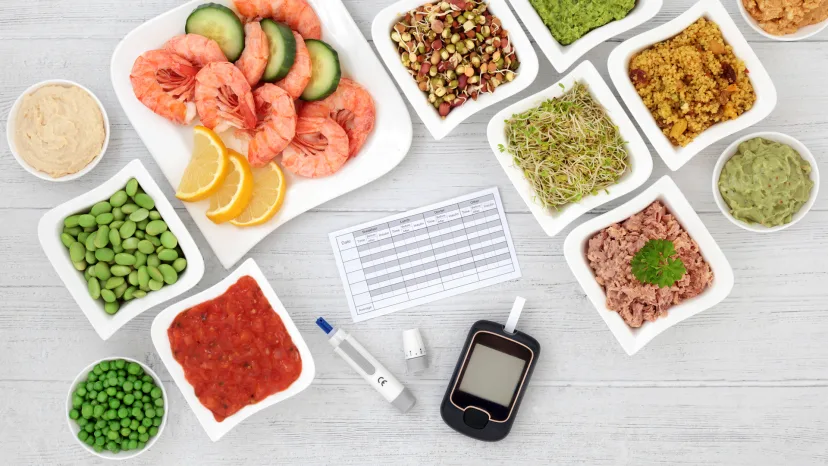Living with diabetes
Introduction
No matter which type of diabetes you have, whether type 1 or type 2, your healthcare provider (HCP) will help you figure out the ideal treatment, diet, and level of physical activity to help you manage your condition and live life to the fullest.
Although it might seem daunting to think about now, with time, working with your care team will become second nature. Along the way, you'll learn how to listen to your body and give it what it needs.
Keep reading for more information about living with diabetes, then speak with your HCP about any questions you may have.
Diabetes care plan

Diabetes management starts with your care team, which may include your primary HCP, plus specialists like endocrinologists, dietitians, and certified diabetes educators. Together, they will work with you to create and adjust your care plan as your needs change. Keep reading to find out what to expect.
Diabetes diet
Living with diabetes often means making changes to your diet. At times, this process can be challenging and confusing. You may be wondering whether you can drink alcohol or eat fruit, along with a number of your other favorite foods. While altering the way you eat and drink might seem scary at first, you might also be pleasantly surprised to find that it’s doable. Read on for more information about developing a diet that can help support your diabetes care plan.
Diabetes exercise

One of the best things anyone can do to protect their heart and cardiovascular system is to exercise. Whether you have type 1 or type 2 diabetes, exercise will likely play a big role in your diabetes management plan. Find tips to exercise safely without having your blood sugar drop too low. Don't forget to talk to your HCP about what exercises might be best for you.





